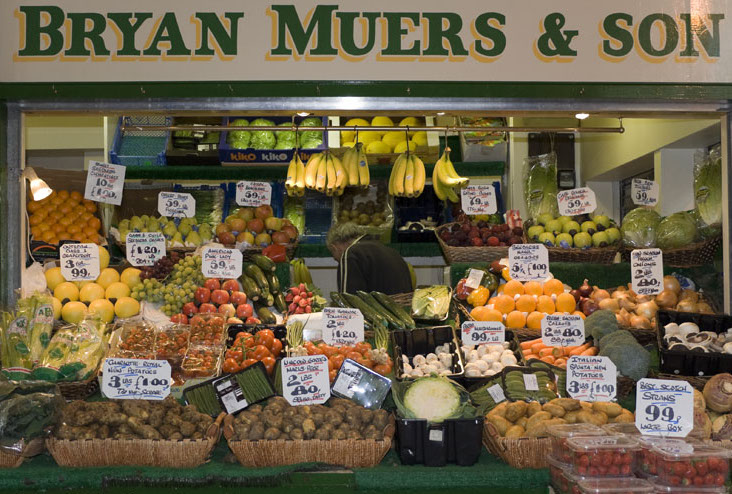I’m a locavore. There. I’ve said it. It’s out there.
When declaring “locavore” its word of the year in 2007, Oxford University Press defined the term as, “a person whose diet consists only or principally of locally-grown or produced food”. In the US that usually means eating food grown or produced within a radius of 100 miles. In the UK we’d probably opt for a much tighter radius, for the produce to be described as local.
However I believe the locavore lifestyle or appetite should be more closely linked with a social exchange – supporting the local micro-economy through conversation and social interaction, rather than simply buying an organic cucumber that was grown 10 miles away.
As a 21st century locavore I face a dilemma. My Riverfords organic veg box subscription meets the 100-mile rule. But how can I justify that choice when the Riverfords farm is located in North Yorkshire, while on our own doorstep we have the North East Organic Growers – a similar vegetable box subscription service based in Bedlington, just 10 miles from where I live.
Does it matter, or am I becoming a locabore? I sought the advice of Marek Norvid, owner of RPM Music, an independent record shop in Newcastle. His view? We’re now part of a global economy, so if you become a Stalinist locavore then it’s a model that doesn’t truly work. A true locavore would need to disconnect from the mains, source rainwater from the gutter to boil home-grown potatoes, and create homemade clothing from locally reared sheep’s wool. And how would that look in the office?
In December, a few days after Black Friday and Cyber Monday, some of us celebrated Small Business Saturday. On Twitter, #Locavore was trending next to images of people buying LP records pressed in Germany, denim made in Japan, and coffee beans grown in Brazil.
However what made such purchases local was the fact that they were bought from small retailers in their local region. Now this is something I can get on board with. The locavore movement shouldn’t be about a set criteria, but about quality in a service, and finding a local supplier which works for you.
I favour this approach because I savour the little nuggets of social exchanges that you only get in independent shops. This could be a musical recommendation from Marek at RPM Music or Anth at Pink Lane Coffee telling me his philosophy on what makes a fresh brew, or even Louis at Union telling me I look sexy in a pair of Foxton Brogues. Maybe I’m just a salesman’s dream, but these are social exchanges that I never really find in a supermarket. And best of all, I’m supporting the local economy.
This is also true of local giving. In my job at the Community Foundation, I gain real pleasure in seeing local voluntary sector organisations receive funding to create stronger communities in our region – like the Muckle LLP Grassroots Fund donating £832 to the Chopwell Tea Dance, a small grant that has made a big difference to a group of elderly people in Gateshead. It’s the feeling of togetherness that truly satisfies my locavore appetite.
If everyone changed their buying or giving habits to support our local and independent businesses and organisations, think how strong our north east economy and society could become. Locavores create an appetite for change.
Iain Riddell is Communications and Development Executive at the Community Foundation Tyne & Wear and Northumberland. You can follow him on Twitter.
How important is it to you to buy local produce? Or buy from a local retailer? Tell us in the comments section below – by clicking on the little plus sign.
(Views expressed on our website and in our magazines and emails are not necessarily endorsed by Northern Correspondent.)

